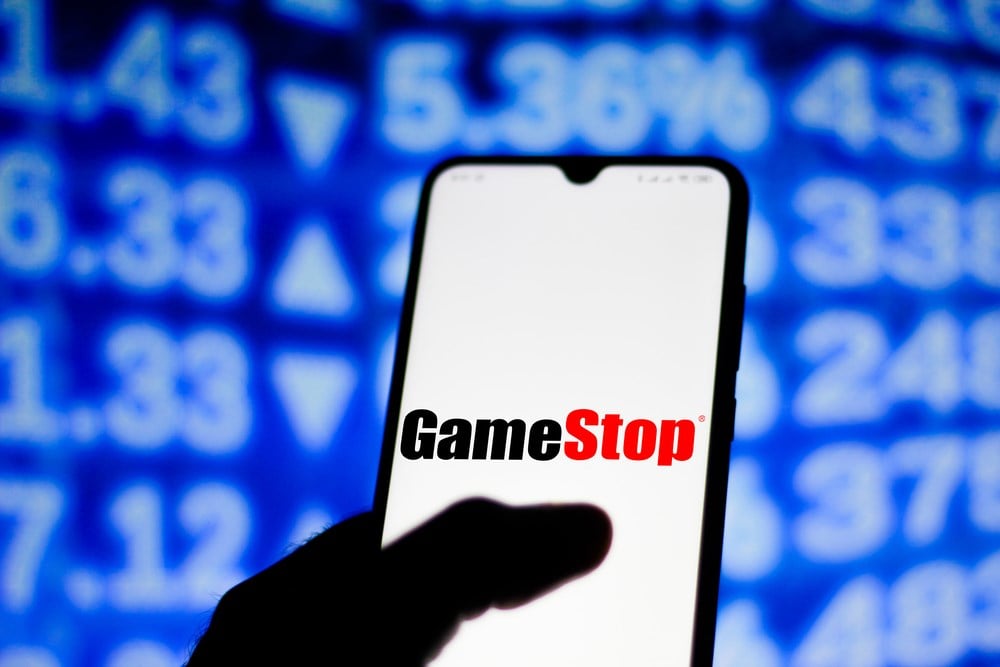
During the stock market craze of 2020-2022 kickstarted by the FED's response to the COVID-19 stock market sell-off and economic slowdown, many companies which were able to sell a corporate strategy and upside potential saw investor funds pile into the door despite what the underlying financials looked like.
This wave has pivoted in the opposite direction now that inflation has gone rampant during 2022-2023, where the FED has decided to raise interest rates to combat these environments.
As a result of these new pivots, the same set of stocks has seen a dire outcome, with most investors pulling out of these names to hunt for more reliable and stable cash-flowing businesses. However, there is one 'meme' stock that did not suffer similar downturns that others in the Reddit space did. GameStop (NYSE: GME), once a favorite among retail investors, has declined by as much as 87% from its all-time high price of $120.75 per share in January 2021.
The stock has held a tight channel for all of 2023, and its first-quarter earnings results may bring about some change.
Bring in the Cavalry
GameStop's management announced a new face to replace the company's former CEO; Ryan Cohen was named the new CEO hours after the company released its quarterly earnings press release. Shares of GameStop plunged by 19.2% immediately after the announcement, as some investors or short-term traders may have taken a hostile stance toward the decision to replace the CEO.
However, Mr. Cohen has had plenty of experience working within a competitive landscape in an industry that faced nothing but competition from E-commerce alternatives.
Ryan founded and successfully ran the online pet outlet Chewy (NYSE: CHWY), a company whose stock price has evolved to reflect a near-mirror pattern from that of GameStop. Despite following a similar fate, Chewy's financials will show that the company has been well-managed to the point of achieving net profitability for the past two quarters of 2023.
The after-market slide in GameStop's shares was likely not entirely due to Cohen's announcement but rather a partial reaction to what happened in the company's financials during the year.
If investors can take anything from this, management change is a straightforward metric, revenue and market share growth. As the company has been battling with other alternative outlets for the gaming industry, namely online commerce, these issues ought to be front and center under Cohen's new leadership.
The Results, Sentiment
GameStop reported a net revenue decline of 10.2% during the first quarter of 2023, compared to the figures achieved during 2022. This initial headline item may have been enough to send the stock on its declining path in the after-market hours of Wednesday evening.
Despite these initially negative headlines, there is some hidden potential behind the figures presented. Some charges pointed out by management may be deemed 'non-recurring' or 'non-core' by investors, which by practice, would add them back to reflect the real core earning power in the company.
Management pointed to a $14.5 million charge stemming from European transition costs. GameStop is undergoing a restructuring initiative to boost its business. Furthermore, as management rightly realizes the importance of an online presence and profitability so the company remains competitive, SG&A (Selling, General, and Administrative) costs were also reduced.
Where these costs represented 32.8% of sales in the first quarter of 2022, they now took away only 27.9% of sales to showcase significant improvements in GameStop's cost structure.
Reporting a net loss of $50.5 million for the quarter, a near $100 million improvement from last year, GME shareholders dealt with a per-share loss of $0.17. However, when the adjustments for the $14.5 million non-core transition charge are considered, net losses look more like $36 million. Keeping the same amount of shares outstanding constant, the actual 'core' earnings would have fallen by approximately $0.11.
GameStop analyst ratings point to significant downside risk from today's prices, as the current median price target is $5.30 per share. These pessimistic views may stem from the company's B minus credit rating by Standard & Poor's, along with the latest disappointing sales results in the first quarter.
Today it would seem that the primary catalyst investors can look for to revive a new rally is a new corporate strategy focused on reinventing the brand and regaining market share in the space; Ryan Cohen had better get to work in accomplishing these metrics as the new CEO.






